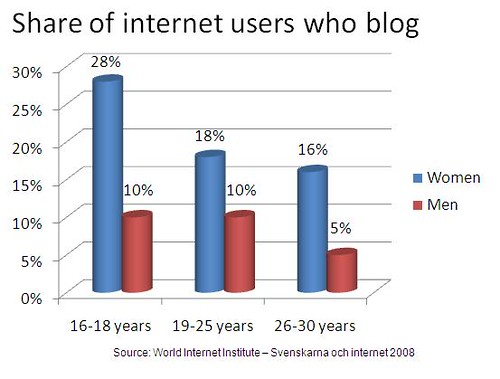After recently reading Andrew Keen’s book the The Cult of the Amateur I found myself nodding in agreement to the fact that I would rather listen to talented person than a bunch of amateurs. Much of the book is filled with contradictions, errors and digressions but his main point is that we shouldn’t be so happy about the amateur productions occurring online since they are effectively killing of the professional market.
My main gripe against Keen is that his arguments against online amateurs can also be used against others. Crappy musicians, tv shows, movies & reporters all steal attention and market shares away from the talented few. But sure the online medium is particularly good at allowing a lot more crappy amateurs to participate.
While thinking about these things I came across Andrew Sullivan’s article Why I Blog in The Atlantic. The why question is an old one which seems to affect all bloggers at different stages. Most probably because someone around them will eventually ask the question: but why do you do it? This can at time set of a wave of introspection and a need to self justify.
Way back in 2005 I explored this myself and linked to Alex Soojung-Kim Pang site (no longer available but a excerpt here) on 4 reasons why academics should blog. In April this year Henry Jenkins wrote a piece on why academics should blog.
The blog posts represent what might be called “just-in-time scholarship,” offering thoughtful responses to contemporary developments in the field. Because they are written for a general rather than specialized readership, these short pieces prove useful for teaching undergraduate subjects. We are seeing a growing number of colleagues using blog posts or podcasts as a springboard for classroom discussions and other instructional activities. Having developed a steady readership for such content, we are also able to use our blogs to showcase innovative ideas and research from colleagues around the world.
But Sullivan is more brutal about blogging this may be because three years later the blog has come of age. Indeed media has predicted the death, rebirth, redeath, rebirth of the blog several times since they discovered them in 2006.
The blog remained a superficial medium, of course. By superficial, I mean simply that blogging rewards brevity and immediacy. No one wants to read a 9,000-word treatise online…the key to understanding a blog is to realize that it’s a broadcast, not a publication. If it stops moving, it dies. If it stops paddling, it sinks.
In addition to this need to keep moving is the results that the blog has on the writer. Sullivan again
Alone in front of a computer, at any moment, are two people: a blogger and a reader… It [writing] renders a writer and a reader not just connected but linked in a visceral, personal way. The only term that really describes this is friendship.
And that is the main point of the blog. It is a conversation. Naturally a rather one-sided conversation. In part it is the enjoyment of writing, in part the need to comment on life as it occurs but at best there are reactions to the ideas expressed within the words in a way which rarely happens anywhere else. This is why I blog.

